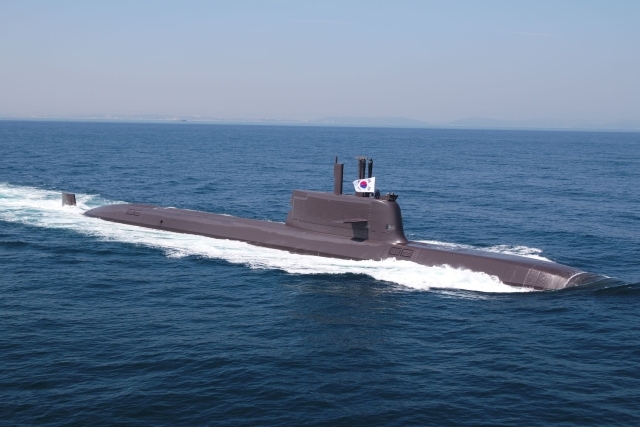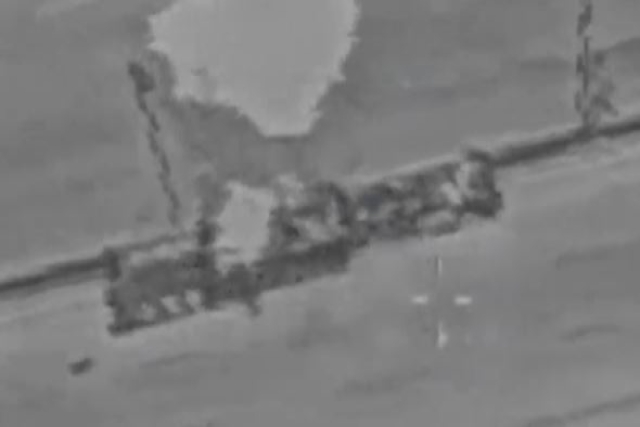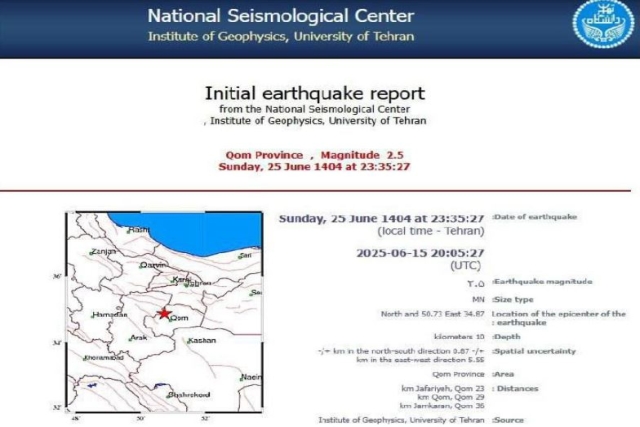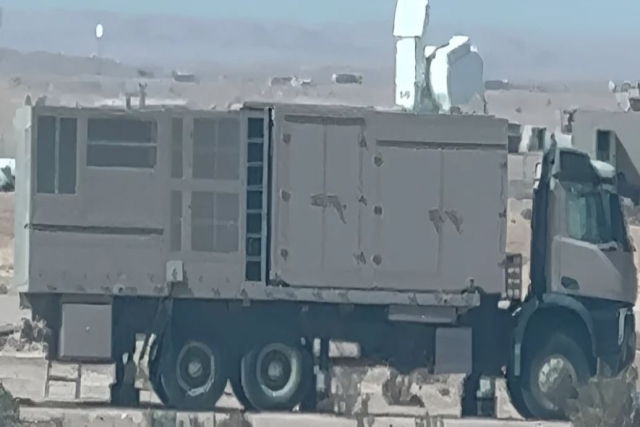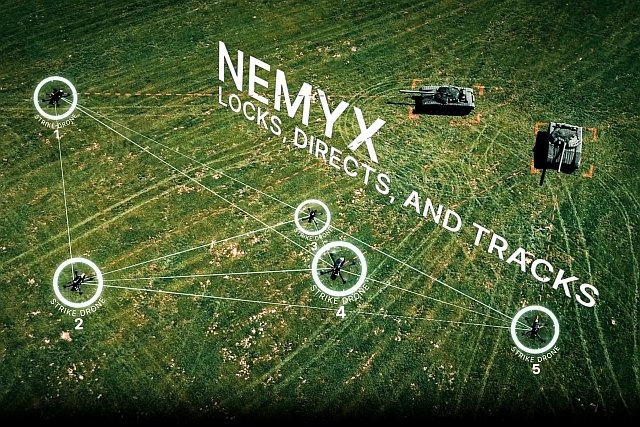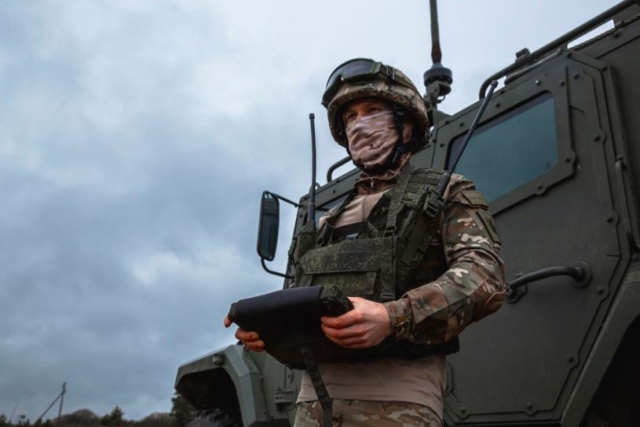Iran Claims to Control Israeli Airspace as Fattah Missile Lands in Tel Aviv
Meanwhile, Israeli warplanes struck several targets in Iran completely unopposed by Iranian air defense
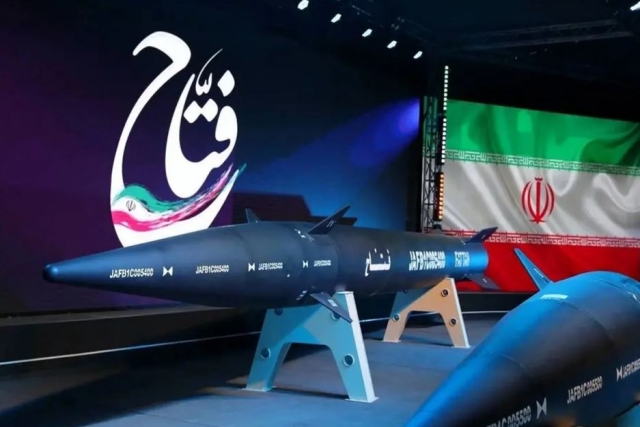
Iran’s Islamic Revolutionary Guard Corps (IRGC) claimed on Tuesday that its forces now have full control over Israeli airspace following the launch of its latest Fattah missile, which reportedly struck a target in Tel Aviv undetected.
The IRGC said the successful strike demonstrated the failure of Israel’s missile defense systems to detect or intercept the incoming projectile. “The latest missile strike has proven beyond any doubt that the skies over the occupied territories are now fully under our control,” the IRGC said, according to Iranian state media.
According to the IRGC, the attack involved the first-generation variant of the Fattah missile, a weapon Iran says is capable of evading radar and other tracking systems. “We are witnessing the beginning of the end of the Zionist army’s air defense system,” the statement added.
General Reza Talaei-Nik, a spokesman for Iran’s Defense Ministry, confirmed that the missile strike targeted what he called an “Israeli intelligence facility.” In a statement reported by IRNA, Talaei-Nik said, “In today’s attack, we used missiles that were impossible to track or intercept.”
General Abdulrahim Mousavi, Chairman of the Joint Chiefs of Staff of the Iranian Armed Forces, said the strikes were part of an evolving campaign that began last Friday. He described the operations as initially “deterrent” but now “punitive,” suggesting a shift in Iran’s response to Israeli military actions.
The escalation follows an Israeli air operation on the night of June 13, which Tehran said was aimed at disrupting its nuclear program. Iran responded with a wave of missile attacks targeting Israeli positions.
There has been no confirmation from the Israeli side regarding the reported strike on Tel Aviv or whether the Fattah missile was involved. Israeli authorities have also not commented on the state of their air defense performance following the attack.
This is not the first time Tehran has used hypersonic missiles against Israel. On October 1, 2024, Iran launched dozens of Fattah-1 missiles during Operation True Promise II. However, this appears to be the first use of the missile in the current conflict.
Fattah-1 missile
Hypersonic missiles, including glide vehicles and cruise types, can maneuver at high speeds within the atmosphere, making them difficult to track or intercept. They travel at Mach 5 or faster—over 6,100 km/h. Most ballistic missiles also reach hypersonic speeds, especially during descent, according to CNN.
Fattah-1, Iran’s first hypersonic missile, was unveiled in 2023 and named by Supreme Leader Ayatollah Ali Khamenei. It reportedly bypasses systems like Israel’s Iron Dome and Arrow, and the IRGC refers to it as the “Israel-striker.”
The missile is 12 meters long, has a range of 1,400 km, and carries 200 kg of explosives. Powered by a single-stage solid-fuel system, Fattah-1 features a hypersonic glide vehicle capable of reaching speeds up to 17,900 km/h. According to analyst Fabian Hinz, it uses a manoeuvrable reentry vehicle to evade interception.
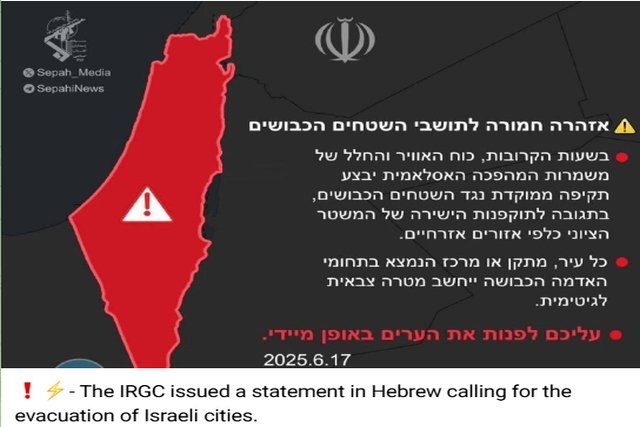
Israel Strikes Tehran as Conflict Escalates; Trump Warns Iran’s Leader
Israeli jets pounded Tehran overnight, hitting key infrastructure and an oil facility, as Iran launched a limited missile barrage with no reported casualties.
Amid sirens in southern Israel, U.S. President Donald Trump demanded Iran's “unconditional surrender,” warning, “We know exactly where the so-called ‘Supreme Leader’ is hiding… but we don’t want missiles shot at civilians or American soldiers.”
A blast rocked Tehran at 5 a.m., with earlier explosions hitting Hakimiyeh, where Iran’s Revolutionary Guard has an academy. The Grand Bazaar shuttered, traffic choked the streets, and residents fled as Israel’s air campaign entered its sixth day.
Human Rights Activists, a Washington-based group, said at least 585 people have died in Iran, including 239 civilians. Iran disputes the figure, last claiming 224 dead.
Israel said it killed Gen. Ali Shadmani, Iran’s new top commander, in an airstrike—just days after his appointment.
Iran’s army chief Gen. Abdul Rahim Mousavi vowed “punishment” would follow. Meanwhile, the U.S. sent more warplanes to the region and shut its Jerusalem embassy through Friday.

